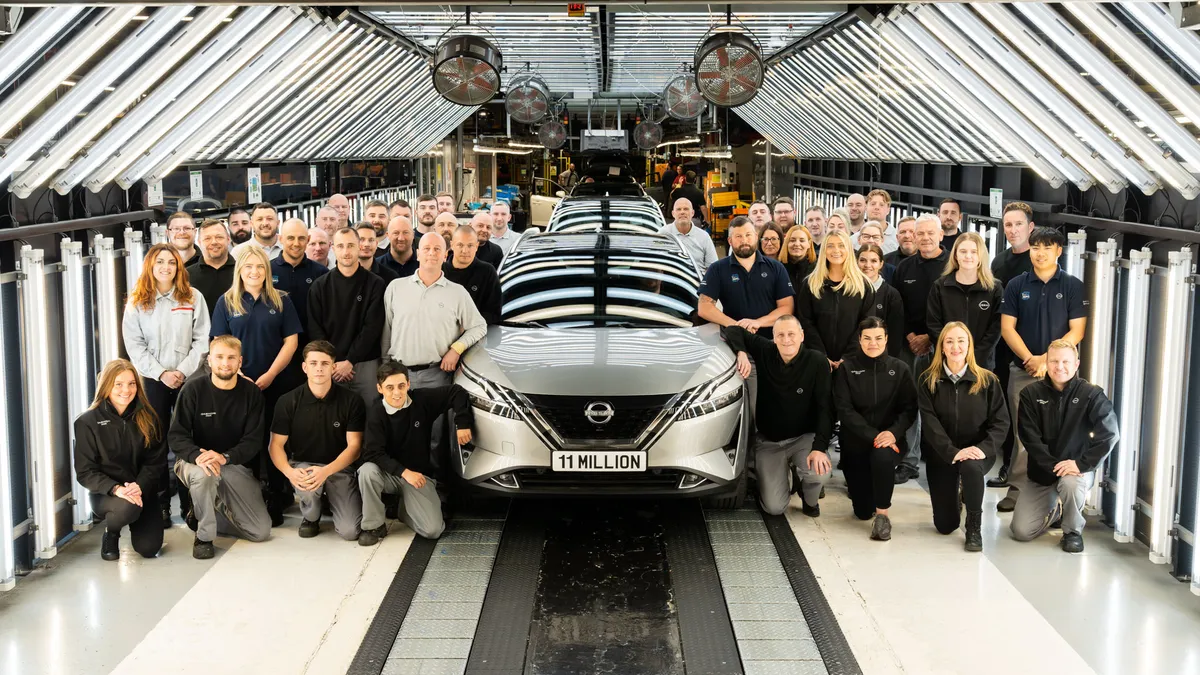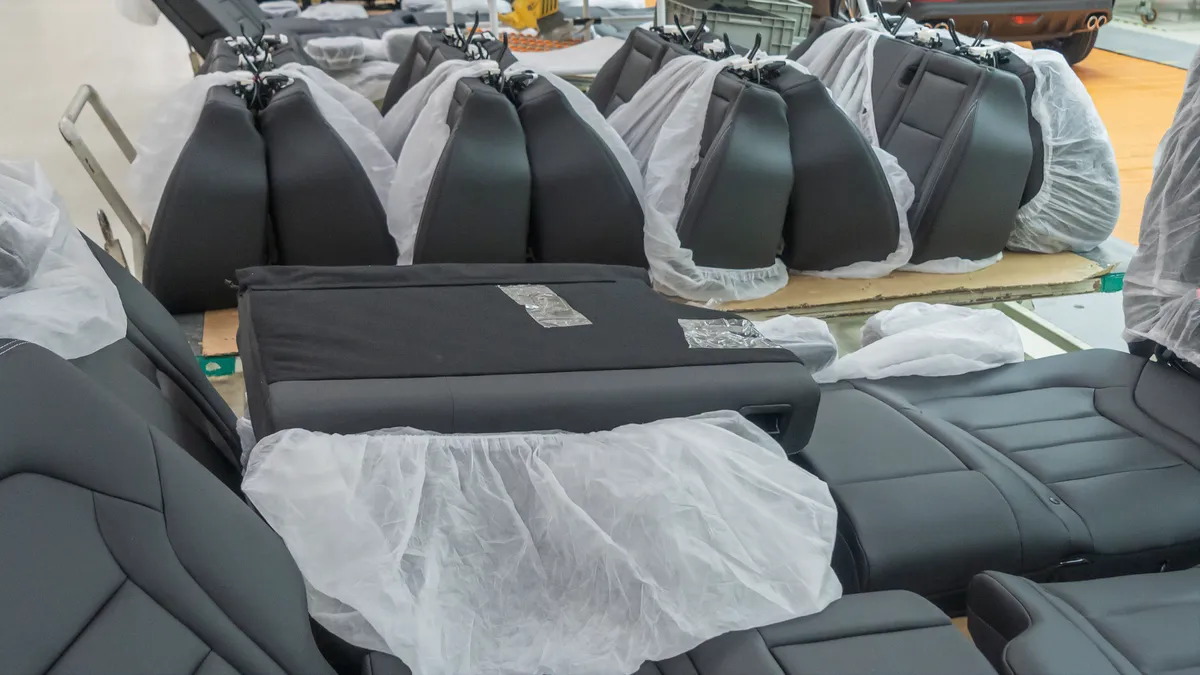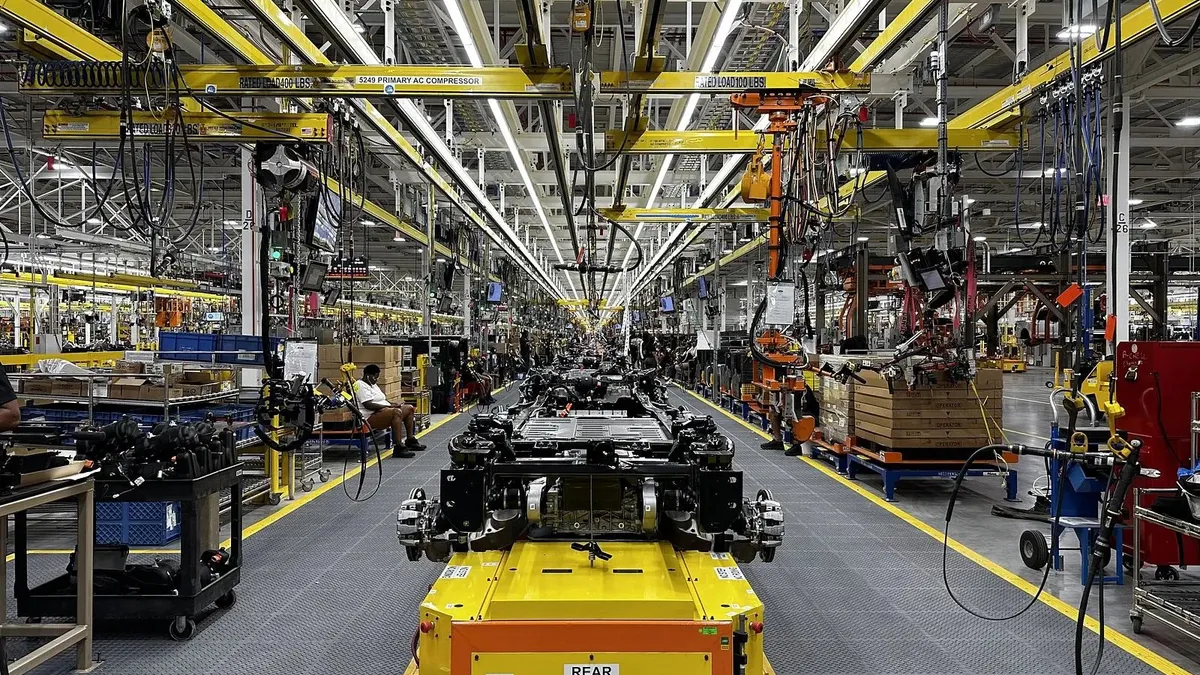Dive Brief:
- Nissan said Monday that all new models in Europe will be fully electric starting now.
- The move is part of the automaker’s plan to only sell fully-electric vehicles in Europe by 2030.
- The company aims to introduce 27 electrified vehicles globally by 2030, including 19 fully-electric models.
Dive Insight:
Nissan has already confirmed two all-new electric vehicles for Europe, including a compact model that will replace the entry-level Nissan Micra. It will build the other vehicle at EV36Zero — Nissan's new electric vehicle hub in Sunderland, U.K., incorporating EV manufacturing and battery production.
The automaker also says it will introduce solid-state, cobalt-free battery technology as part of its efforts to bring the cost of EV batteries down by 2028 and help make EVs more affordable. According to the U.S. Department of Energy, the average cost of producing batteries was $153 per kWh in 2022.
Nissan expects to lower EV battery manufacturing costs to $75 per kWh by 2028 and, eventually, to $65 per kWh. That would make EV production costs similar to gas-powered vehicles.
Sales of Nissan's electric and electrified vehicles in Europe have risen from 5% of the total market to 44% from 2018-2022. Sales of fully electric models rose from 1% to 12% of the total market during the same period. EVs currently account for 16% of Nissan's total sales in Europe — it expects that figure to rise to 98% within three years.
The news comes as the European Union tightens regulations on auto emissions. In March, the EU banned sales of new carbon dioxide-emitting vehicles starting in 2035.
Meanwhile, in the U.S., Nissan wants more than 40% of its vehicle sales to be fully electric models by 2030. The automaker is launching two new electric models assembled at its factory in Canton, Mississippi, starting in late 2025.














